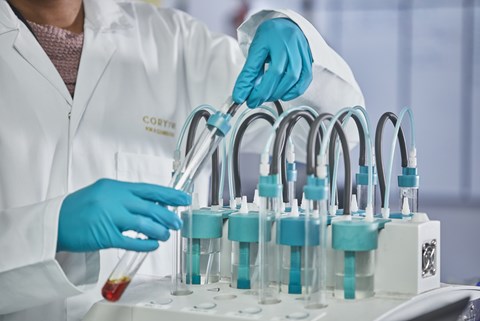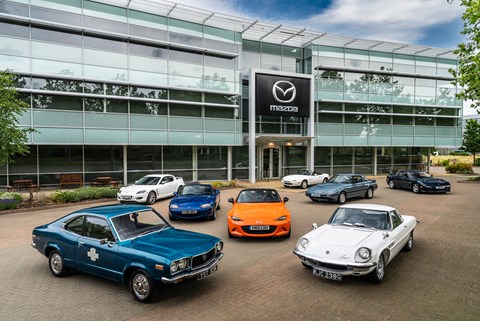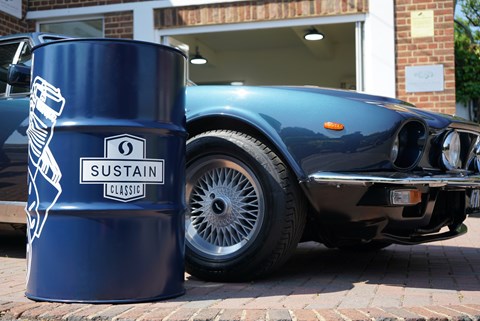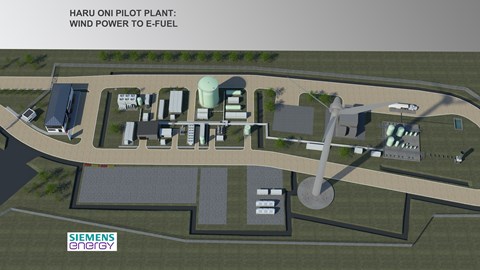► Synthetic fuels are available to buy now
► Allowed for some ICE cars post-2035 in EU
► Cost and scale still an issue
Like it or not, the world is inexorably shifting away from the internal combustion engine to battery electric cars. From 2035, no new ICE-powered cars will be sold in the UK, but there will still be millions of cars on the road that need petrol and diesel for many years after that date. And that’s just the everyday, common or garden stuff.
Classic cars, race cars and other more interesting machinery will hopefully be around in running condition for centuries to come. After all, the skills and knowledge needed to keep the very earliest cars running is out there, nearly 150 years after they were first built. And there’s no reason why they shouldn’t still be usable in another 150 years. The same goes for any other car.
So long as there’s liquid fuel available to power those cars. It’s likely that petrol and diesel will remain available from fuel station forecourts for decades to come – no major countries are proposing an end to its sale. But, as the proportion of ICE-powered vehicles on the road reduces, the economic viability of selling fossil fuels on a large scale will dwindle away and petrol and diesel pumps will become a rare sight.

The future of liquid fuel
Liquid fuels will almost certainly remain available in some form, though. And we’re already getting an insight into what that form might be with the synthetic fuels and eFuels – also known as sustainable fuels – that are already on the open market or being used in specialist applications. eFuels are made from man-made hydrocarbons, whereas synthetic fuels use more natural substances.
Such fuels are being enthusiastically embraced by the motorsport and classic car worlds. Individuals and organisations in those worlds are keen to push development of the technology in an effort to head off the possibility of being regulated out of existence. That’s despite their vanishingly small CO2 footprint, but the lack of knowledge among lawmakers means many see draconian restrictions as a real possibility.
Right now, synthetic fuels can only be bought in the UK from a very limited number of outlets, but a manufacturer has plans to set up forecourts. If that proves a success, others will surely follow.
Here’s a rundown of the current biggest players in the synthetic fuels market, what their fuel actually is, where it’s being used and how you can get some for your car.
Synthetic fuels: what companies are making them?
P1 Performance Fuels fossil-free eFuel
German company P1 Performance Fuels has made a big impact since it was launched in 2018. It has been the exclusive fuel supplier to the World Rally Championship since 2022 and made a splash at the 2023 Goodwood Festival of Speed. There, it provided the fuel for the ex-Mansell Williams and ex-Senna McLaren owned by Sebastian Vettel (pictured below) and driven by him up the hill. P1 has also supported the Gumball Rally and is an official partner of the Silverstone Festival.

P1’s eFuel is made by converting alcohols into synthetic hydrocarbons. The energy needed to produce the fuel comes entirely from renewable sources including wind, solar and hydroelectricity. No fossil fuel is used in the process and most of P1’s products have no ethanol content, which can damage rubber and plastic components in an older car’s fuel system. It’s a ‘drop-in’ fuel, meaning that no engine modifications are needed to use it.
An extensive range of fuel blends is available from P1, for a variety of road and race applications. UK distributor Nemesis Ltd. was appointed in August 2023, though a proper retail network has yet to be established. For now, you can only buy by the barrel direct from the P1 Fuels website. It has reached pumps at a single location in Berlin and the company has ambitious plans to make its products available from a network of fuel stations across Europe in the coming years.
Coryton SUSTAIN synthetic fuel
UK-based Coryton hit the headlines in 2021 when it supplied fuel for the Prodrive-run BRX Hunter cars that contested that year’s Dakar Rally, a relationship that continues. But Coryton’s motorsport activities go much further, the company working at every level from Formula 1 down to the grass roots. It also has a close relationship with Mazda UK, supplying fuel for the Japanese brand’s heritage fleet. Indeed, Coryton has thus far mostly focused its UK efforts in the classic car field.

80 per cent of Coryton’s SUSTAIN fuel is made from agricultural waste including straw and crops that can’t be used for animal or human consumption. The remaining 20 per cent consists of high-grade fossil fuel and a stabilising additive. Ethanol content is just one percent. Again, only renewable energy is used to make the fuel. Coryton claims it reduces greenhouse gas emissions by 65 per cent compared with fossil fuels. Like P1, it’s a drop-in fuel that requires no car modifications to use.

Two blends of Coryton SUSTAIN are available, one developed for motorsport applications and one aimed squarely at classic car drivers. The latter is currently available from Motor Spirit at Bicester Heritage and The Splined Hub near Peterborough has also signed up as a stockist. There’s a pump at Bicester and you can also buy by the barrel.
Porsche-Siemens eFuel project
Perhaps the best-known sustainable fuel project was inaugurated by Siemens Energy and Porsche in 2020. Based in southern Chile, the Haru Oni project aims to produce 55 million litres of eFuel by 2024, and 550 million litres by 2026. The fuel will largely be used by Porsche’s experience centre fleets, vehicle development programs and motorsport activities. It may be available for general sale at some point down the line, as well.

The fuel is made by separating water into hydrogen and oxygen, then the so-called green hydrogen is combined with CO2 scrubbed from the atmosphere to create methanol. That’s then turned into useable fuel via the ExxonMobil-licensed Methanol to Gasoline (MTG) process. Production is powered by the abundant wind energy available in southern Chile.
Will sustainable fuels save the internal combustion engine?
In March 2023, the EU announced an exemption to its 2035 ban on the sale of new petrol and diesel cars that will allow ICE-powered cars capable of only running on eFuels. It isn’t clear how that will work in practice, but it will likely only apply to very low volume cars. At the moment, the UK isn’t planning on following the EU’s lead, either.
The point is that fossil-free fuels are highly unlikely to grant mass market ICE cars a stay of execution. Not least because producing them is incredibly energy inefficient. The vast amount of wind energy generated at the Porsche-Siemens plant in Chile would be much more efficiently used if went straight into an EV’s battery.
eFuels are also very expensive – you’ll currently pay well over £3.00 per litre for P1 and Coryton fuel. That will come down over time but it’s unlikely to ever dip below the £2.00 per litre mark that would make them a viable replacement for petrol and diesel for all vehicles.
But eFuels and synthetic fuels will play a vital role in keeping interesting, old cars going for decades, even centuries after petrol and diesel is no longer available.